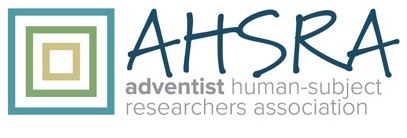Location
Virtual Conference
Start Date
19-5-2021 12:00 AM
End Date
21-5-2021 12:00 AM
Description
For many islands in the South Pacific Traditional Ecological Knowledge (TEK) is rarely taught and sought by locals and is lost due to the increase of urbanization and no transmission of such knowledge to younger generations. The Birds of Paradise (BOP) are one example of their TEK, beliefs, and practices being lost as the flagship of Papua New Guinea (PNG). The aim of this study was to examine the species richness and conservation status of the Raggiana Bird-of-Paradise (Paradisaea raggiana) (RBOP), and TEK among the indigenous Koiari people along the Kokoda Track in Central Province, PNG. A pretested questionnaire survey was used to collect information about local TEK, beliefs, and practices regarding the RBOP including its forest habitats. Indigenous Koiari people (17 to 83 years) were from four villages (Ioribaiwa, Agulogo, Manari, and Efogi). A total of 9 different species of BOPs were recorded as known by respondents, with 20 (36.4%) respondents distinctively using the RBOP for cultural or traditional uses.
Respondents aged 31-40 years exhibited greater BOP and traditional knowledge, as measured by number of BOP species identified and traditional importance of RBOP. Male participants demonstrated better BOP species identification and TEK. Our results show that action is needed to document and present community TEK in Koiari, Central province, including PNG to preserve biodiversity and support cultural conservation.
Traditional Ecological Knowledge, beliefs, and practices associated with the Raggiana Bird- of-Paradise (Paradisaea raggiana) in Koiari, Central Province, Papua New Guinea.
Virtual Conference
For many islands in the South Pacific Traditional Ecological Knowledge (TEK) is rarely taught and sought by locals and is lost due to the increase of urbanization and no transmission of such knowledge to younger generations. The Birds of Paradise (BOP) are one example of their TEK, beliefs, and practices being lost as the flagship of Papua New Guinea (PNG). The aim of this study was to examine the species richness and conservation status of the Raggiana Bird-of-Paradise (Paradisaea raggiana) (RBOP), and TEK among the indigenous Koiari people along the Kokoda Track in Central Province, PNG. A pretested questionnaire survey was used to collect information about local TEK, beliefs, and practices regarding the RBOP including its forest habitats. Indigenous Koiari people (17 to 83 years) were from four villages (Ioribaiwa, Agulogo, Manari, and Efogi). A total of 9 different species of BOPs were recorded as known by respondents, with 20 (36.4%) respondents distinctively using the RBOP for cultural or traditional uses.
Respondents aged 31-40 years exhibited greater BOP and traditional knowledge, as measured by number of BOP species identified and traditional importance of RBOP. Male participants demonstrated better BOP species identification and TEK. Our results show that action is needed to document and present community TEK in Koiari, Central province, including PNG to preserve biodiversity and support cultural conservation.



